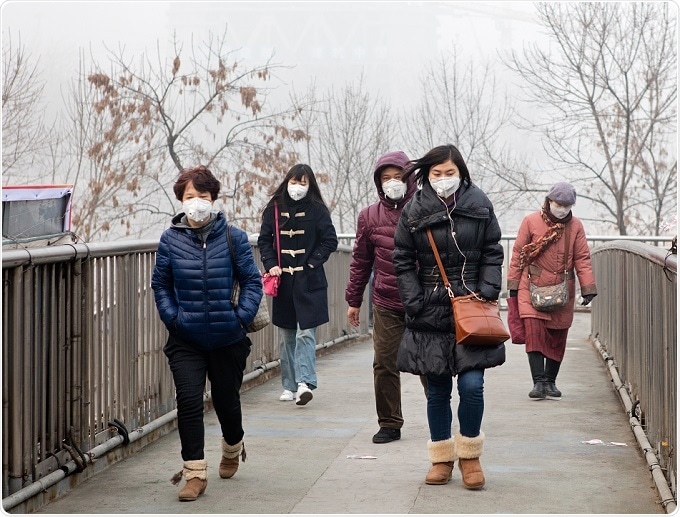A study conducted in China has revealed the effect that high-level air pollution has on a person’s life expectancy.

Editorial credit: testing/ Shutterstock.com
Researchers know that an estimated 4.5 billion globally are exposed to air pollution levels at least twice as high as those considered safe by the World Health Organization. However, what has largely remained unknown is how this impacts on life expectancy.
Now, a study looking at the effects of China’s Huai River policy has shown that the lifespan of people living in the north of China is 3.1 years shorter than among people in the south, as a result of air pollution levels that are 46% higher.
The policy meant that people living north of the Huai River received free coal to power their boilers during the winter, whereas people in the south received almost none due to China not having enough resources to provide free coal for everyone. Migration was also restricted, meaning people exposed to the pollution were unable to migrate to less polluted areas. This policy and the migration restrictions has provided researchers with an opportunity to isolate the impact on health that exposure to high air pollution has over a sustained period.
The limitations of many previous studies have been their reliance on designs that may not isolate the causal effects of air pollution and the relatively short period of time that the effect of air pollution is measured for (weekly or annually). Studies have also been carried out in areas where air pollution is much lower than in countries such as China and India, leaving uncertainty about how applicable the results are.
The study's unique design provides solutions to several challenges that have been difficult to solve. The Huai River policy also provides a research design that can be used to explore a variety of other questions about the long-run consequences of exposure to high levels of pollution."
Maoyong Fan, Ball State University.
The study showed that every additional 10 micrograms per cubic meter of particulate matter pollution (PM10) caused a reduction in life expectancy of 0.6 years. This reduction was due entirely to an increased number of cardiorespiratory deaths, suggesting that it is air pollution alone that is having this effect on life expectancy.
Co-author Michael Greenstone, director of the Energy Policy Institute at the University of Chicago says the results indicate that exposure to the particulates represents “the greatest current environmental risk to human health, with the impact on life expectancy in many parts of the world similar to the effects of every man, woman and child smoking cigarettes for several decades.”
Another author of the study, Maigeng Zhou (National Center for Chronic and Non-communicable Disease Control) says the important information this study has revealed will help to build the case for policies that will improve the lives of Chinese people, as well people around the world who are exposed to high levels of air pollution.